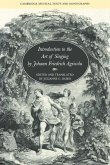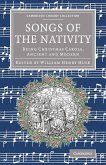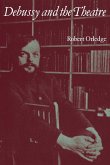A fascinating history of singing styles from the ancient world to the present.
Why do singers sing in the way they do? Why, for example, is western classical singing so different from pop singing? How is it that Freddie Mercury and Montserrat Caballé could sing together? These are the kinds of questions which John Potter, a singer with the Hilliard Ensemble and Red Byrd, and himself the master of many styles, poses in this fascinating book, which is effectively a history of singing style. He finds the reasons to be primarily ideological rather than specifically musical. His book identifies particular historical 'moments of change' in singing technique and style, and relates these to a three-stage theory of style based on the relationship of singing to text. There is a substantial section on meaning in singing, and a discussion of how the transmission of meaning is enabled or inhibited by different varieties of style or technique.
Review quote:
'- immensely stimulating - This book should encourage us, and also make us take more seriously the need for a very different type of voice.' Early Music Review
'The book brings enlightenment of some kind on each page -' Musical Times
Table of contents:
Preface; Acknowledgements; 1. Classical ideology and the pre-history of singing; 2. The medieval period: religion, literacy and control; 3. The Italian baroque revolution; 4. The development of the modern voice; 5. Concerts, choirs and music halls; 6. Armstrong to Sinatra: swing and sub-text; 7. Early music and the avant garde: twentieth-century fragmentation; 8. Elvis Presley to rap: moments of change since the forties; 9. Singing and social processes; 10. Towards a theory of vocal style; Notes; List of references; Index.
Hinweis: Dieser Artikel kann nur an eine deutsche Lieferadresse ausgeliefert werden.
Why do singers sing in the way they do? Why, for example, is western classical singing so different from pop singing? How is it that Freddie Mercury and Montserrat Caballé could sing together? These are the kinds of questions which John Potter, a singer with the Hilliard Ensemble and Red Byrd, and himself the master of many styles, poses in this fascinating book, which is effectively a history of singing style. He finds the reasons to be primarily ideological rather than specifically musical. His book identifies particular historical 'moments of change' in singing technique and style, and relates these to a three-stage theory of style based on the relationship of singing to text. There is a substantial section on meaning in singing, and a discussion of how the transmission of meaning is enabled or inhibited by different varieties of style or technique.
Review quote:
'- immensely stimulating - This book should encourage us, and also make us take more seriously the need for a very different type of voice.' Early Music Review
'The book brings enlightenment of some kind on each page -' Musical Times
Table of contents:
Preface; Acknowledgements; 1. Classical ideology and the pre-history of singing; 2. The medieval period: religion, literacy and control; 3. The Italian baroque revolution; 4. The development of the modern voice; 5. Concerts, choirs and music halls; 6. Armstrong to Sinatra: swing and sub-text; 7. Early music and the avant garde: twentieth-century fragmentation; 8. Elvis Presley to rap: moments of change since the forties; 9. Singing and social processes; 10. Towards a theory of vocal style; Notes; List of references; Index.
Hinweis: Dieser Artikel kann nur an eine deutsche Lieferadresse ausgeliefert werden.








